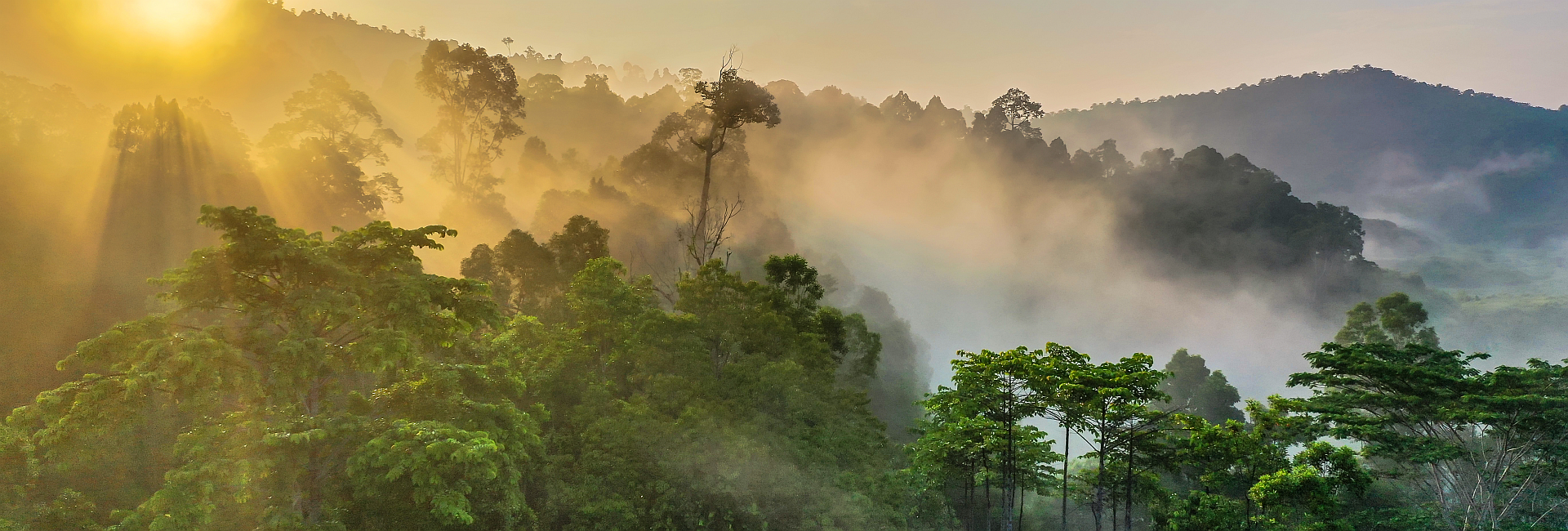World Wildlife Day takes place every year on 3rd March. It exists to celebrate all the world's wild animals and plants in addition to the contribution they make to our lives and the health of the planet.
The Importance of World Wildlife Day
With increasing numbers of endangered species, it’s extremely important to raise awareness and educate people on how we can help conserve the planet to continue to provide for future generations.
Wild animal species and plants are a fundamental part of the world’s biological diversity. The ecosystems where wildlife can be found such as deserts, forests, rainforests, plain and grasslands represent another aspect of biological diversity, together with genetic diversity.
The interaction between all these components over the course of over 3 billion years is what's made our planet habitable to all species – including our own.
We depend completely on biodiversity for everything from energy, food and materials to the very air we breathe. Sadly, unregulated or poorly managed human activities have drastically impacted local and global ecosystems, which has consequently altered biodiversity and put the existence of many species under threat.

The History of World Wildlife Day
On 3rd March 1973, the United Nations General Assembly took a stand to protect endangered species throughout the world. They highlighted that whether plant or animal, the importance of these species in every area of human life, from culinary to medical, could not be understated. At this time hundreds of endangered species were being threatened every year, and extinction was at a remarkably high rate. The Convention on International Trade in Endangered Species was put into place to ensure that the world did not continue to destroy species.
On 20th December 2013, another step was taken to help spread awareness. At its 68th session, the UN declared that each year World Wildlife Day would be dedicated to a new purpose and idea to encourage people to take care and be aware of the changing nature of our world, and the treasures we stand to lose from the life of animals and plants if we don’t.
Sometimes World Wildlife Day highlights an endangered animal or group of animals, while in other years, it has focused on a specific issue affecting the world of wildlife. Previous themes have included getting serious about wildlife crime and listening to young voices. This year, the theme is “Partnerships for Wildlife Conservation”. It will allow us to celebrate all conservation efforts, from intergovernmental to local scale.

What Can We Do to Help?
It can certainly feel overwhelming when we face such huge challenges to life on our planet. However, each individual’s actions, regardless of how big or small contribute to change. In addition, when we all do something and talk about what we're doing, whether it’s sharing with family, online, or with colleagues, it becomes easier for others to see how they can make a difference too, and get inspired by what you’re doing. Here are some ideas you can implement into your life to contribute:
Set a Goal
Live your daily life with the smallest negative impact on wildlife, their habitat, and the environment. A few examples include buying locally, shopping sustainably, recycling, avoiding waste, and saving both water and energy.
Consume Responsibly
By not purchasing products made from illegally sourced, protected wildlife or their parts and products, you can stop wildlife trafficking from being a profitable trade.
Visit & Volunteer
Volunteer with The Great Projects! We work with organisations globally to establish high standards in animal welfare and conservation within the responsible tourism sector. Therefore, volunteering at one of our conservation-focused wildlife projects is certainly a step in the right direction in helping to conserve some of the world's most endangered species. In addition, visiting aquariums, botanical gardens, national parks, and nature reserves are great places where you can learn more.
Stay Informed
Understand and learn more about our planet such as the species that are in danger of extinction. Research ways that you and your community can conserve wildlife. Inform yourself about current environmental matters and be aware of your individual impact on ecosystems and wildlife. Think globally, act locally!
Speak Out
One of the easiest ways to help is to spread the message. Share your knowledge and questions about wildlife conservation with your friends, family, and community, either in person or online.

How Do We Make a Difference?
The Great Projects work with organisations worldwide to establish high standards in animal welfare and conservation within the responsible tourism sector. We believe in using sustainable tourism as a tool to positively impact local communities and at-risk environments to aid the conservation of endangered animals and fragile ecosystems. None of our projects or tours exploit animals, the local area, or the community, and we refuse to work with any organisation which fails to adhere to responsible tourism standards. We make our projects as ethical and sustainable as possible as we’re dedicated to the care and conservation of animals and their habitats around the world.
Do you have any additional ideas of what more we can all do in 2023? Happy World Wildlife Day!










